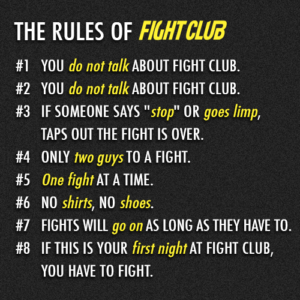I use to think the title ‘HR Partner’ was played out and it probably was for a time. There was a point a few years ago when every HR Pro had to change their title from HR Manager, HR Director, etc., to HR Partner. It always made me feel like we were all apart of a bad cowboy movie, ‘Giddy up, Partner!’
I’ve actually grown to really like the “Partner” in the title of an HR Professional. While many HR Pros just changed their title, I’ve met some great ‘Partners’ in HR who have changed their game, to match their title change.
What makes a Great HR Partner Great? Here are 5 things I think makes them game-changers:
1. Great HR Partners know your business. Now, wait. I didn’t say they ‘knew their own business’, they know the business of who they support. But wait, there’s more! They know the business of who they support, the way the person or team they support knows it. Say what?! It’s not good enough to know the business of your organization. You have to know how those you support know and support the business.
That could be different, based on the leader. One leader might be ultra-conservative in their business practices, another risky. A great HR Partner knows how to support them in the way those they support, want to be supported – while still being able to do the HR part of their job.
2. Great HR Partners have a short-term memory. Great baseball pitchers don’t remember one pitch to the next. Each pitch is new. Each pitch has the potential for success. If they remembered each pitch, the last one, that was hit for a home run, would cloud their judgment about the next pitch.
Great HR Partners are willing to change their mind and try new things. They don’t carry around their experiences like a suitcase, pulling them out and throwing them on the table each time those they support want to try something new. Don’t forget about your failures, but also don’t let your failures stop you from trying again.
3. Great HR Partners allow risk. A great HR Partner is able and willing to accept that organizations have risk. It is not the job of HR to eliminate risk, it is the job of HR to advise of risk, then find ways to help those they support, their partners, to achieve the optimal results in spite of those risks. Far too many HR Partners attempt to eliminate risk and become the ‘No’ police. Great HR Partners know when to say “No” and when to say “Yes”.
4. Great HR Partners don’t pass blame. If you are a great HR partner and you work with great partners, you will all support each other in the decision making process. A great HR Partner will never pass blame but will accept their share as being one of those who supported the decision to move forward.
This doesn’t mean you become a doormat. Behind closed doors, with your partners, you hash out what there is to hash out. When the doors open – all partners support the final decision that is made. A Great HR Partner will have the influence to ensure they can, and will, support that decision when those doors open up.
5. Great HR Partners don’t wait to be asked. A great partner in any capacity is going to support those they support with every skill they have available to them. In HR we have people skills – so when those who we support have issues, we offer up our ideas on what we can do to help the team. Great HR Partners don’t stop at HR advice! In a time of brainstorming and problem solving the idea that goes unshared, is the worst kind of idea.
I might not know operations, and I will say that up front, but I’m going to put myself out there and tell my partners that eliminating the rubber grommets on the bottom of the widget is a bad idea because while it saves us $.13 per unit, it also makes our product slide around and that ultimately will piss off the customer.
Being an ‘HR Partner’ has very little to do with HR. Those you support expect you have the HR expertise. What they don’t expect is how great of a ‘partner’ you can be. Great HR Partners focus on the partnership, not on the HR.


